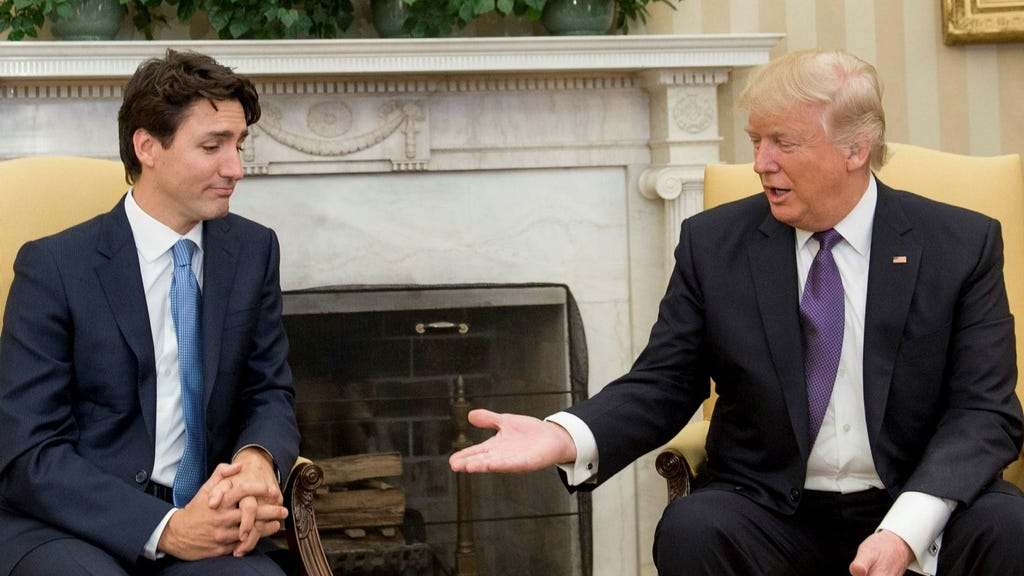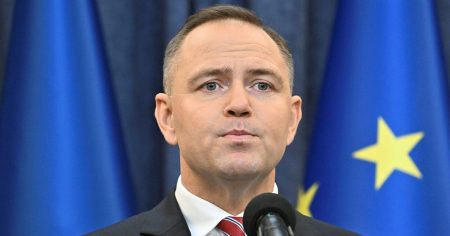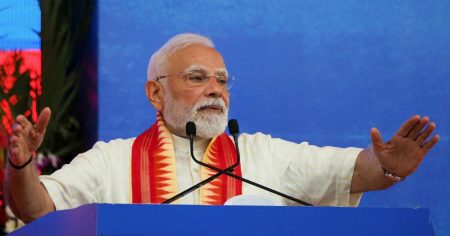The political landscape has been shaken by the recent actions of the Trump administration, particularly concerning international relations and trade. A palpable sense of confusion and concern permeates both sides of the border, as citizens struggle to understand the rationale behind seemingly erratic policy decisions. From the Panama Canal to Greenland, and the floated idea of annexing Canada, many Americans, including traditional Republican voters, find themselves bewildered by the administration’s focus and its potential consequences. This confusion is further exacerbated by the interwoven nature of global economics, as citizens struggle to connect geopolitical maneuvering with the rising cost of everyday goods like eggs.
Canadian Prime Minister Justin Trudeau, recognizing this unease, directly addressed the American public, appealing to the shared history and interconnectedness of the two nations. He emphasized the long-standing friendship, partnership, and alliance between the countries, highlighting the potential damage Trump’s policies could inflict not just on Canadians but also on Americans themselves. Trudeau’s message was a stark warning: job losses in the automotive sector, increased food prices, and higher gasoline costs are all potential repercussions of the ongoing trade disputes. He further pointed to potential disruptions in the supply chain for vital resources like nickel, uranium, and steel, all of which are crucial to the American economy. Trudeau’s direct appeal underscores the gravity of the situation and the potential for far-reaching negative consequences for both nations.
Canada’s response to the escalating trade war is the implementation of retaliatory tariffs. However, Canadian policymakers are keenly aware of the significant power imbalance they face. Challenging the United States, the world’s dominant economic and military power, is a daunting task, akin to the biblical David facing Goliath. Trudeau, nearing the end of his term and facing potential political headwinds, is fighting for his political survival and the preservation of his liberal ideology. The odds appear stacked against him, but Trudeau, like the biblical David, is seeking leverage and strategies to counter the seemingly overwhelming force of the Trump administration. His appeal to the American people is one such strategy, aiming to galvanize public opinion and pressure the administration from within.
The Trump administration justifies its actions by citing the need to curb illegal immigration and the flow of fentanyl into the country. Immigration was a central theme of Trump’s presidential campaign, and his supporters expect him to deliver on his promises. The administration’s focus on these issues resonates with a segment of the population concerned about border security and drug trafficking. This focus, presented as decisive action, aims to satisfy a core constituency.
However, the administration’s actions are at odds with another key promise made by Trump during his campaign: lowering inflation and improving the economic well-being of American citizens. Voters are increasingly frustrated by rising prices for essential goods and services, including food and gasoline. The very economic anxieties that fueled Trump’s rise to power are now being exacerbated by his policies. The irony is not lost on many who voted for Trump based on his economic promises, only to find themselves facing increased costs for everyday items like cell phones, clothing, toys, food, and, crucially, gasoline and auto parts. The disconnect between campaign promises and the current reality is causing consternation among Trump’s base.
The question remains whether the Trump administration is truly concerned about the impact its policies are having on American consumers. While some argue that the administration is focused on long-term gains, others believe that the immediate economic pain being felt by many Americans will ultimately undermine the administration’s support. Trudeau, in his direct address to the American people, is essentially reminding them of these promises and the potential economic consequences of the administration’s actions. He is, in effect, picking up stones from the riverbed, aiming to target the vulnerabilities of the “Goliath” he faces. The effectiveness of his strategy remains to be seen, but it underscores the complex and potentially detrimental consequences of the current trade disputes.














